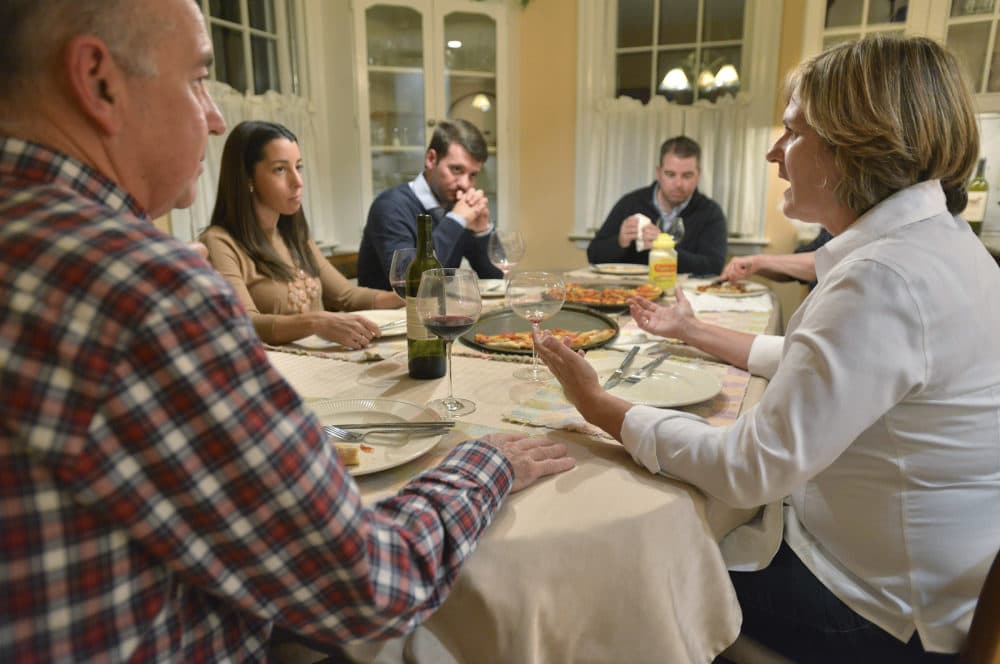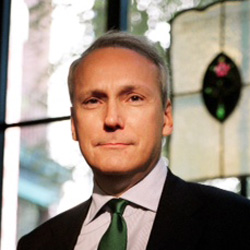Advertisement
Commentary
Surprise! Research Says You Shouldn't Shy Away From Politics At Thanksgiving Dinner

As Thanksgiving approaches, many Americans are bustling to get ready for a big family dinner. That means preparing the turkey — and preparing for an uncomfortable conversation about politics with the family member you just don’t see eye to eye with. After years of pushing sworn enemies to engage with each other around the world, talking about politics during Thanksgiving never seemed difficult. But something has shifted in the past few years, talking with members of the other party seems as daunting as I can remember it. The stakes and the differences feel greater than ever. Lately, every year the ritual is similar. As I drive to my brother-in-law's house, I repeat to myself the same mantra: no matter how provocative the remarks, do not engage. A couple of hours later, my commitment has shifted, and I decide to pick my battles.
Many of us feel that we could cut the tension with the same knife we use to carve the bird. A Marist poll in 2017 found that 58% of Americans “dread the thought of having to talk about politics at Thanksgiving dinner,” and events of the last few years give little reason to believe things have improved. And that dread is not just theoretical — Americans may simply cut Thanksgiving short to avoid political conflict. A 2018 article from Science found that when a Thanksgiving dinner includes members from opposite political parties, it lasts almost an hour shorter than dinners where everyone is from the same party.
The real danger starts when these false beliefs about the other side become self-perpetuating.
But recent studies suggest the conversations won’t be nearly as bad as we think — and in fact, the future of our democracy may depend on us stomaching some politics along with Aunt Joyce’s casserole. That’s because the cognitive biases that tell us to avoid political conversations with family members are the same ones that convince us the country is more polarized than it actually is. And that’s a misperception we urgently need to address.
First, we tend to overestimate how unpleasant it is to engage with those we disagree with, and it drives us to tune out the other side altogether. A recent study from the Harvard Kennedy School measured Americans’ expected vs. actual reactions to political information they’d otherwise avoid. For example, participants were asked to read statements written by voters from the other side, or watch speeches from a senator of the opposite party. Partisan voters ended up agreeing with the opposition more than they thought they would, and didn’t feel as many negative emotions — annoyed, resentful, nervous, angry or afraid — as they predicted they would. Yet troublingly, the study also found that our false expectations about how bad we’ll feel when we’re exposed to opposing views is a big part of why we prefer to consume information that confirms our beliefs.
Second, we tend to believe the other side dislikes us more than they actually do. At Beyond Conflict, we periodically measure how Democratic and Republican voters feel about each other using a “feeling thermometer.” The level of dislike between parties is high — but it’s not nearly as high as Americans think it is. For example, on a scale of 0 to 100, Democrats believe Republicans dislike them an average of 17 points more than they actually do. And Republicans believe Democrats dislike them 13 points more than they actually do.
The real danger starts when these false beliefs about the other side become self-perpetuating. The more we avoid new information, the more certain we are that we’re right. And the more we think the other side loathes us, the likelier we are to loathe them in return. Studies show that as these gaps widen, democratic norms break down. When everything the other side does is perceived as a threat, then the previously unthinkable becomes possible. People are more callous to the possibility of political violence against the other side, or support putting their party’s interest over the national interest.
If we’re going to correct our mistaken beliefs about voters across the country, we should start with the voter across the table.
The good news is that we can reverse this cycle. When we learn that we agree with the other side more than we thought — and that they don’t dislike us as much as we thought -- our negative perceptions of the other side are mitigated and conversation becomes possible. In fact, a study published in Nature Human Behavior this month found that when people are taught about this gap between perception and reality, they adjust their beliefs about what the other side thinks about them to more closely align with reality. Even better, it worked especially well for those with the most extreme views. Of course, there is no guarantee that the conversation will not be upsetting, annoying, and maybe even a little offensive. But most of us already feel upset, annoyed, and offended, so we might as well improve American democracy while we’re at it?
At scale, this means a substantial shift in our political discourse, driven by opinion leaders in politics, media and culture. But it also starts with us. If we’re going to correct our mistaken beliefs about voters across the country, we should start with the voter across the table. So cut a second slice of pumpkin pie and ask your cousin about that ridiculous Facebook post. Trust us — you have more in common than you think you do.
